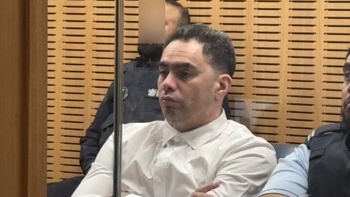An independent drug researcher says the Police should stop including MDMA in wastewater testing and should instead focus on "other opioids".
This follows police analysis which shows Kiwis spend nearly $1.4 million on methamphetamine every single day.
Described by scientists as "one large urine test", the wastewater testing started with three sites in 2016 - Whangarei, Auckland's North Shore and Christchurch - but was rolled out nationwide last November.
The ESR testing at 38 sites now captures 80 per cent of the population and officials hope it will paint a clearer picture of New Zealand's drug habits.
An average of 16kg of methamphetamine has been consumed each week in November, December and January according to the preliminary results released today.
This costs the country an estimated $20 million each week in social harm - or $1 billion a year.
MDMA was the second most popular drug in New Zealand, with around 4kg consumed each week.
Independent drug researcher, Geoff Noller, told Kate Hawkesby the statistics around meth are very concerning.
However, he said the Police shouldn't be testing for MDMA because the harm from the drug is so minimal.
"For a start there is a lot less MDMA being consumed than methamphetamine. The two drugs are really quite different. I mean MDMA is a methamphetamine...it's in the same family, but it is a far different beast altogether."
"Quite frankly I don't think the Police should be spending their time testing for MDMA, they could be testing for other drugs instead."
He said MDMA is currently a Class B drug, but there is an argument that it should be moved down to Class C.
"The harm associated with MDMA is much less. And there are people who would say if there was a more MDMA being used in New Zealand and a little less meth, it probably would be a better place."
However, he said the harm associated with methamphetamine is a real concern.
"In terms of meth, it is a worrying issue because there is also a quite significant difference between the proportions of, for example, Māori who may be using methamphetamine compared to non-Māori and there are the health implications associated with that. So there is an issue of inequitable harm there."
Noller said while a relatively small number of people use the drug, it can be incredibly harmful.
"The Ministry of Health collects data on methamphetamine use and they suggest it's around about 0.9 per cent of the population aged over 15. So that's around about 40,000 people and you can divide that into the amount that is claimed by the Police and that comes out to about $300 a week that people are spending, so it's not everyone obviously, we are not all using methamphetamine."
"The other issue with methamphetamine that is potentially really problematic...is the proportion of people who might start using methamphetamine, typically people will smoke it or swallow it...but it potentially transitions to people injecting it and that's when you really start to get into harm."
He said when it comes to harm to New Zealand, the worst drug is alcohol which is often overshadowed.
Take your Radio, Podcasts and Music with you









